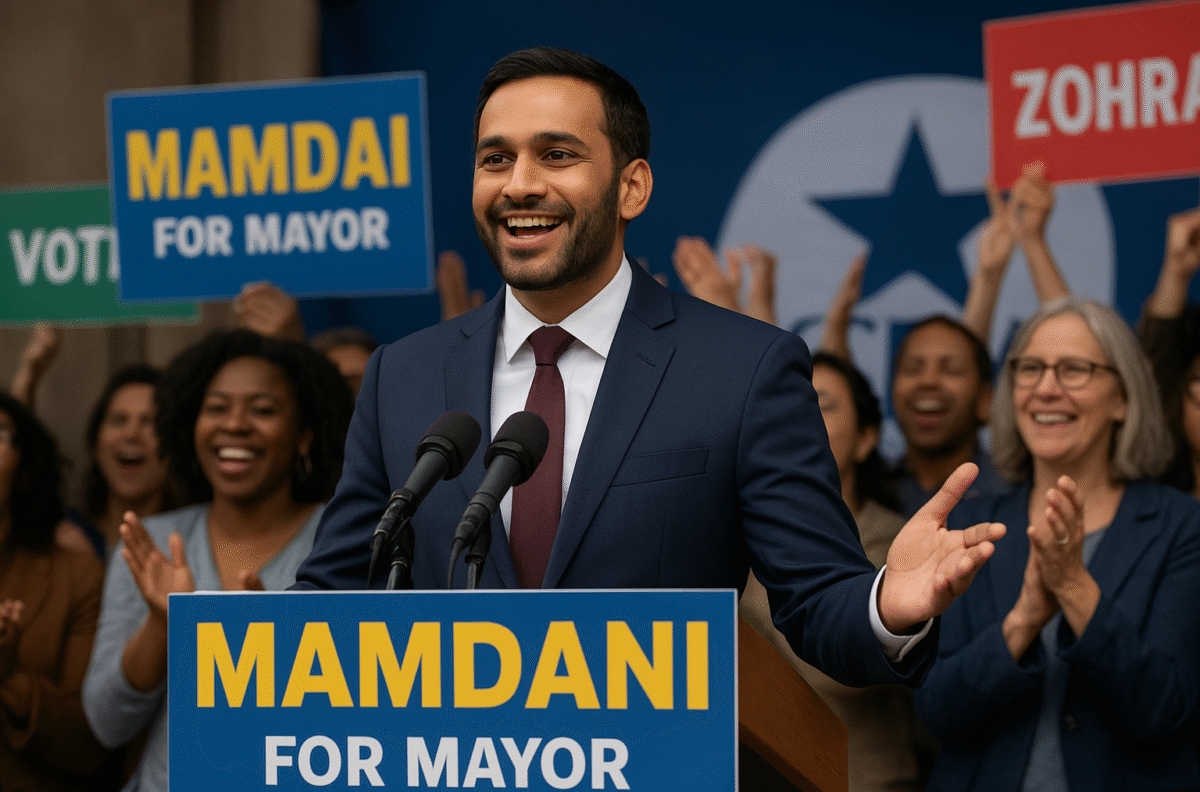Could Zohran Mamdani become the most transformative mayor in New York’s history?

From the moment Zohran Mamdani announced his candidacy, his campaign radiated bold ambition — and on election night, that ambition translated into history. At just 34 years old, Mamdani defeated heavyweight names to become the 111th mayor of New York City, making him the city’s youngest mayor in over a century and the first Muslim to hold the office.
Born in Uganda and raised in Queens, Mamdani entered the race virtually unknown. He launched his bid last year with minimal funding, little institutional backing and scant public recognition. Yet his grassroots campaign resonated deeply across the five boroughs — and on election night, the voters spoke.
A Platform for the Everyday New Yorker
While his identity makes headlines, Mamdani’s platform was firmly grounded in affordability and systemic change. He pledged to raise the minimum wage to $30 an hour, raise taxes on the city’s highest earners, make bus transit free, offer universal childcare and significantly expand affordable housing.
Perhaps his boldest promises: a rent freeze for two million New Yorkers in rent-stabilised units, and a plan to launch city-owned grocery stores with price controls on staples. These initiatives signal a commitment to challenging the status quo of housing and cost-of-living in the city.
The Upset That Reordered Expectations
Mamdani’s trajectory wasn’t routine. He beat the odds in the Democratic primary, defeating former governor Andrew Cuomo in a major upset. That win gave him momentum going into the general election where he secured more than 50 % of the vote, a feat not achieved in decades for a New York mayoral race.
His win is being interpreted as a breakthrough for the progressive wing of the Democratic Party and a sign that voters are hungry for leadership rooted in generational change, not just experience.
The Windblown Path Ahead
Of course, election day is only the beginning. Many of Mamdani’s proposals will require cooperation from the City Council, state government and private stakeholders — not to mention a hefty funding stream. His campaign estimated raising ~$10 billion annually to cover the ambitious plan, and navigating those fiscal realities will test his leadership.
Critics argue that his lack of executive experience and the radical nature of some promises could hamper deliverables. Others warn that his ascendancy could trigger a backlash among business interests and conservative voters. But for now, New Yorkers are embracing something new — a mayor who promises hope, not just maintenance.
What This Means for the City
-
Symbolically: A major milestone for representation in New York. A city that often touts itself as the world-capital of diversity now elects a mayor born in Africa, of Muslim faith, representing a generational shift.
-
Politically: A signal that working-class concerns — housing, wages, transit — are driving urban politics even in one of the most expensive metropolitan areas in the world.
-
Practically: A test case. Can an outsider-turned-mayor translate symbolism into concrete policy? Can the city infrastructure, budget and stakeholders adapt to a progressive agenda?
“Tonight, we made history,” Mamdani declared after his primary victory. This was more than rhetoric — the election outcome affirmed a new narrative for New York.
In short: New York has chosen not just a mayor, but a manifesto. Now the real work begins — to turn that mandate into measurable change for millions of New Yorkers.
FAQ
Q: Who is Zohran Mamdani?
A: Zohran Mamdani is a state assemblyman from Queens in New York City. He was born in Uganda, raised in New York, and identifies as a democratic socialist. He announced his candidacy for NYC mayor in October 2024 and won the 2025 election, becoming the city’s first Muslim mayor, the youngest in over a century, and the first of South Asian origin.
Q: What makes his victory historic?
A: His victory ticks several ‘firsts’: first Muslim mayor of New York City, first South Asian (of Indian origin) mayor, and youngest mayor in more than a century in this city.
Q: What were his key campaign promises?
A:
-
Raise minimum wage to $30/hr
-
Freeze rent on rent-stabilised units for millions of New Yorkers
-
Make city buses free
-
Launch city-owned grocery stores with controlled prices
-
Expand affordable housing
-
Increase taxes on the highest earners and corporations.
Q: What challenges does he face as mayor?
A:
-
Delivering ambitious promises with limited mayoral power
-
Building consensus in the City Council and with state government
-
Funding the programs — his campaign estimated $10 billion additional revenue annually.
-
Managing business and real-estate interests that may resist his agenda.
Q: When will he take office?
A: He is expected to assume the mayoralty on January 1, 2026.

